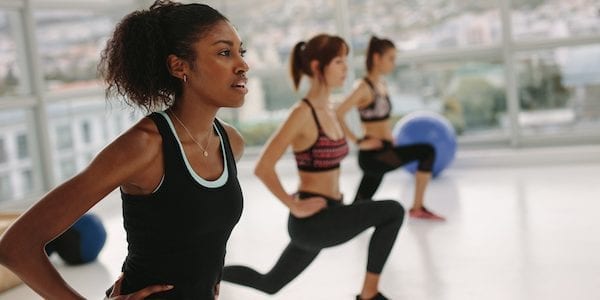
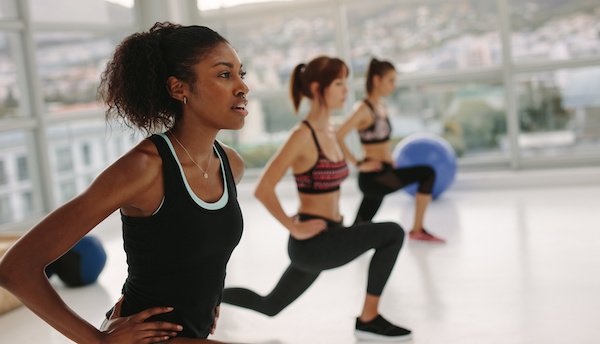
5 Best Steps to Golf Conditioning – Part 3 of 5: Mobility
High School GolfLEVELUP INSIDERS May 30, 2018 Joe Rosenthal 0

I tend to start my blog posts with a question, “Who wants to hit the golf ball shorter?” None of us, right? We are always looking for ways to lower our handicap and hit longer drives! In today’s post, 5 Best Steps to Golf Conditioning, lets address step 3: Mobility.
We take swing lessons, buy new clubs, spend absurd amounts of money on gadgets, to be honest, we’ll do anything to play better golf.
But what else is out there to make this great game a little more enjoyable? You don’t have to look far, you live in it all day long. The answer is your own body.
If you think about it, your body is the most valuable asset you own. If you’re hurt, sick, or can’t move well, you won’t be able to get much accomplished. And that goes for playing golf well too!
This 5 part series will explain what golf conditioning is and how warm-up and cool down, stability, mobility, strength, and power can enable you to be happier and more successful on the golf course.
Step 3 in the Best Steps to Golf Conditioning is Mobility:
Does your lower back hurt? Are you stiff when trying to rotate? How about your hips and shoulders?
These are prime complaints when it comes to the average golfer and their movement.
Why is it that most middle and older aged golfers struggle with mobility? I’m going to blame it on technology! Don’t get me wrong, technology is great but when we analyze how it affects us it’s eye opening.
Basically, today’s tech helps us perform tasks faster, easier, and with less physical effort. But this decreased effort on our part ultimately immobilizes us.
We sit all day at a computer. Almost everything in our car is automatic…and we’re sitting. We don’t even have to use our fingers anymore when watching TV since we have smart remotes…and again, we’re sitting.
With that said, we are going to discuss how to gain mobility and how it will help our golf game.
[bsa_pro_ad_space id=1]
The best way to define mobility…
is the ability of a joint to function properly and in control through the greatest range of motion that it can move.
If we have someone stretch a body part of ours, we will get a certain range of motion. If we lack proper mobility and we move that same body ourselves (with no help), we will probably get less range of motion.
This is what happens when we swing a golf club. We don’t get to the top of our swing and ask our buddy to help us rotate a little more do we? No, that would be crazy. So it’s up to us to gain mobility to produce a nice long, flowing swing.
What should you be focusing on when trying to increase your mobility you might ask?
Great question!
- Work hard but don’t overwork. Make sure you are pushing yourself into new ranges of motion but make sure not to overdo it and tear tissue.
- Don’t compensate! Be honest with yourself and make sure the motion is done properly.
- Be consistent. Consistency is key when we are looking for change in the body. If we only work on our mobility 1 time per week we probably won’t see much change. Start with 4 times per week and add days as you get more comfortable with the moves.
Here are a few moves to help with your mobility in the golf swing:
Hip Flexor with Thoracic Rotation
This is a great multifaceted move that opens up the hips, hamstrings, adductors, and thoracic spine.
Neck Looks
An overlooked part of the body that needs a lot of mobility in the golf swing is the neck. Here is a simple move you can do every day to increase the mobility of your cervical spine.
Crab Glute Bridge
Lastly, the Crab Glute Bridge. Here you are working on hip extension which combats all the sitting we do. It will also open up the chest and shoulders.

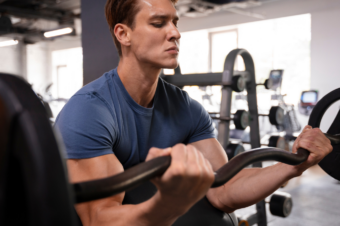
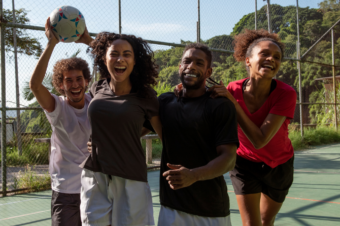
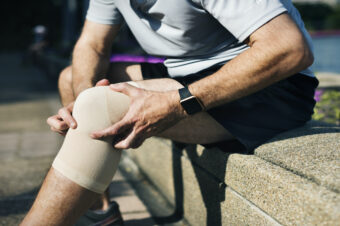





No comments so far.
Be first to leave comment below.